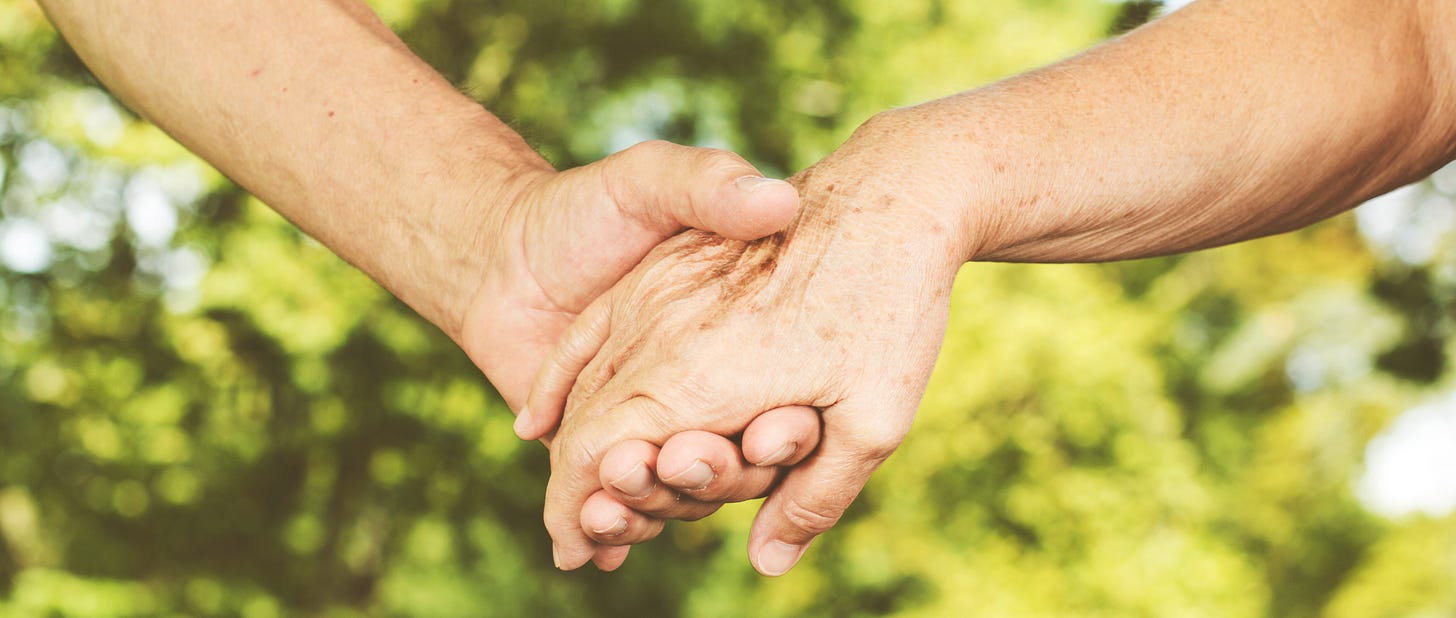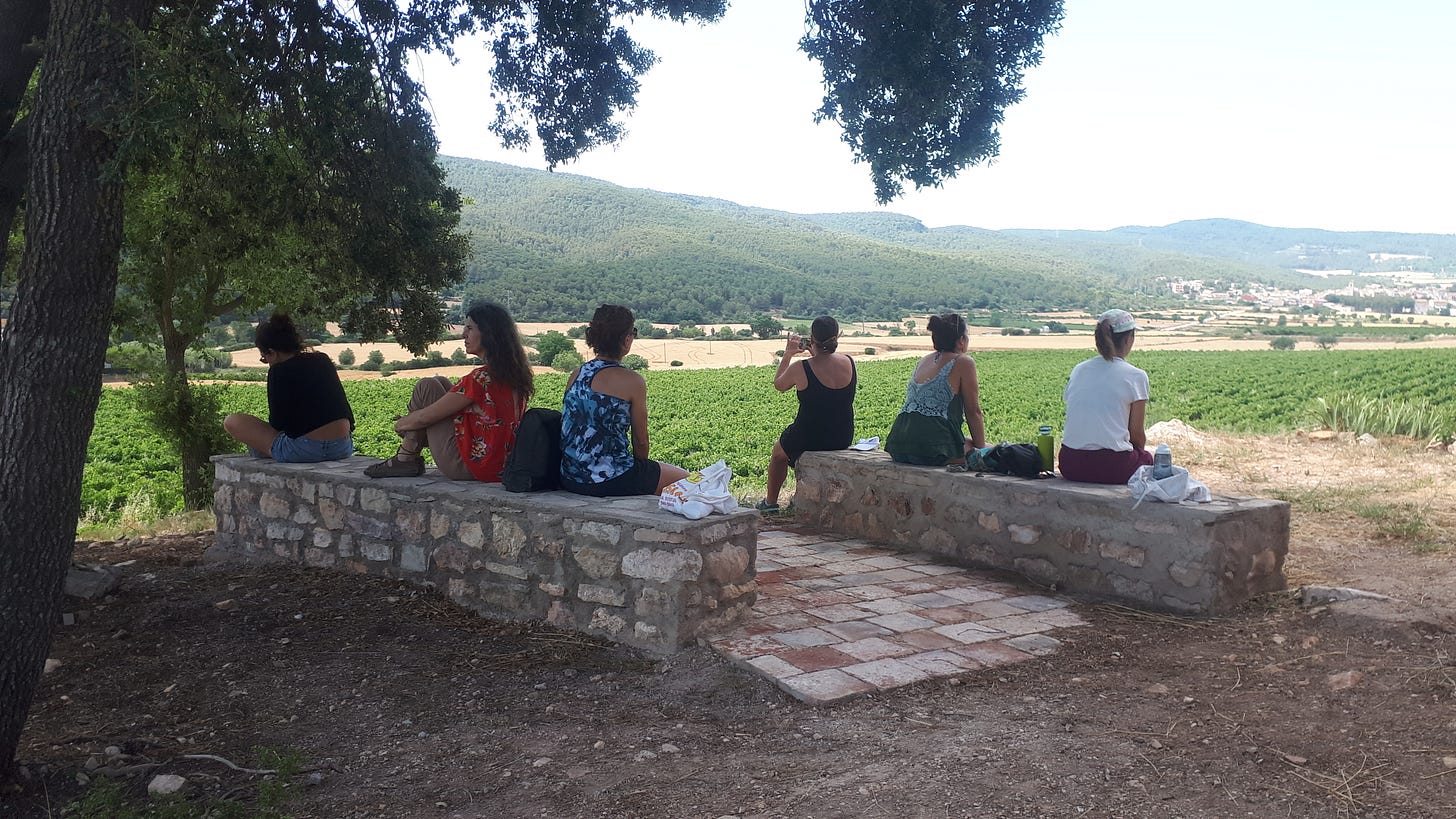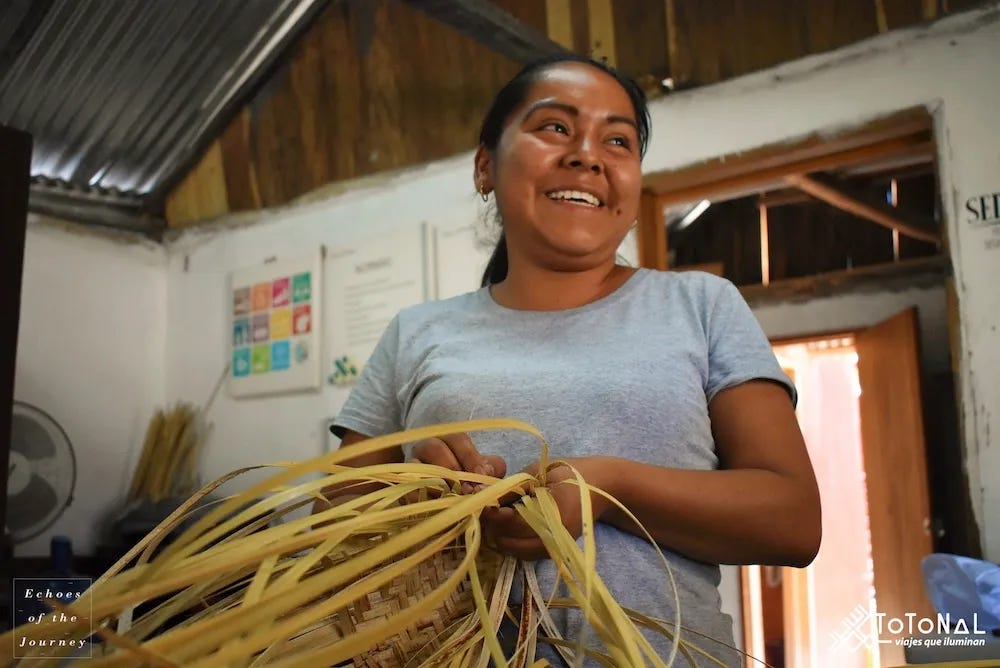The alignment of the three relationships: with myself, with others, and with nature
Exploring the heart of regeneration: three relationships that transform the way we live in the world.
When I first began studying the paradigm of regeneration in Latin America several years ago, I deeply connected with its emphasis on three key relationships: with ourselves, with others, and with nature.
When you first hear it, it sounds quite obvious, doesn’t it? It’s something that’s becoming more and more common in conversations today.
Yet, I would say this is at the very root of many of our challenges—and one of the hardest things to truly live by—because it calls for a fundamental shift in how we do things.
Photo by Mitarart on Adobe Stock
Our symbolic separation from nature
Urban migration has turned many of us into disconnected beings.
Our disconnection from nature—and, therefore, from the idea of being in service to something greater, something that sustains and nourishes us—has left us in a constant search for “something”… even when we can’t name what that something is.
Most people no longer grow or harvest their own food—an act that teaches patience and invites us to marvel at the miracle of life. And needless to say, many no longer eat in truly nourishing ways.
We go out for walks while listening to music or podcasts, or even checking messages. We don’t observe our surroundings. We no longer recognise the songs of birds or the buzz of different insects. We’ve become fearful of dirt, of rain.
Nature has become something to use, to take from whenever we need it. But there’s a problem with that mindset: we are nature. Humans are just one species among many. We live, breathe, and eat because nature continues to create the perfect conditions for life to exist.
The age of immediacy
Many psychologists have written about how this era of instant gratification—where everything is just a click away—has affected not only the way we communicate but also how we perceive and experience the world.
Social media, instant messaging, online shopping that gives us whatever we want without effort, even AI that answers questions, writes articles, and streamlines our work—all of it feeds our brain with constant dopamine hits. But it also isolates us more and more.
We no longer like being called on the phone (sometimes, myself included!). We’re increasingly alone, and that loneliness pushes us to consume more, want more, and never feel satisfied.
Because we’re not used to dialogue, we often react with irritability—or avoid difficult conversations altogether. We don’t train our capacity to face discomfort, to talk things through, and to come out stronger. Many of us have become fragile. Numb to bad news because otherwise, it would overwhelm us.
Photo by Syda Productions on Adobe Stock
The ego and control take centre stage
The ego, when seen as our sense of identity, confidence, and self-esteem, is healthy—and even necessary.
It becomes problematic when, as Eckhart Tolle explains, it turns into a distorted version of ourselves shaped by fear, expectations, and judgement.
The ego can make us afraid to be seen, to fail, to look foolish. It creates a fragile self-esteem that keeps us from stepping out into the world.
We also love to be in control—to plans, to follow rules precisely, to systems. In tourism, where many moving parts need to be synchronised, this level of organisation seems indispensable. I know this first-hand, having built complex quality-control systems to make sure nothing slipped through the cracks.
But that same need for control extends into our homes and personal lives, making us believe we can (and must) control everything.
So… what does this have to do with those three relationships I mentioned earlier?
Everything.
Regeneration works through these three relationships. It may sound simple, but they can make all the difference when designing a healthy, evolving socio-ecological system—whether in tourism or any other field.
The Three Relationships in Living Systems
Living systems operate on three interconnected levels: the relationship with oneself, with others, and with nature. Each one nourishes the others.
1. The relationship with oneself
This has become the main focus in today’s world—personal development. And that’s wonderful.
However, when we approach it in isolation from the world around us, it loses strength.
Working on this relationship from a regenerative perspective means developing the ability to express and live our essence in the world. It’s about truly knowing ourselves—our identity, our purpose—and aligning our actions with that essence.
It may sound simple, but self-inquiry can be confronting. It requires courage to face our fears and limitations. Yet, without this inner work, our actions remain shaped by what others expect from us, not by our authenticity.
Believing in our potential and putting our uniqueness in service of the whole is vital to genuine regeneration.
Photo taken during the retreat Women, Solstice and Regeneration organised by The RegenLab for Travel and ONCE Journeys for Women in Barcelona.
2. The relationship with others
This may be one of the most challenging. It’s about our capacity to function and participate in social life.
For centuries, our societies have evolved toward individualism, and many experts argue that this loss of community commitment has deepened both our environmental and social crises.
Facing global challenges such as climate change, biodiversity loss, or migration requires collaboration across differences—interdisciplinary and cross-sectoral cooperation.
We need to rebuild our ability to listen, to relate, to collaborate (instead of competing), to practise reciprocity and mutuality—just as nature does.
It’s about finding what unites us: a shared purpose. Thinking together, using our collective intelligence.
This shift can transform not only the way we do business or manage destinations, but also the way we live our lives.
3. The relationship with nature
This is the relationship we’ve lost most profoundly.
In our pursuit of wealth and progress, we’ve done so at the expense of nature, forgetting our dependence on the earth and the sun.
Many still believe that we must choose between making money and caring for nature—that both cannot coexist.
Regeneration, however, invites us to co-evolve with living systems. By doing so, we help create the conditions for life, prosperity, and abundance (in every sense, not just the economic one).
It’s about recognising that the economy exists to serve society—not the other way around—and that we must operate within planetary boundaries.
If nature is perfect—sharing information, nutrients, and regenerating itself—imagine what could happen if we applied those same principles in our organisations and in our lives.
Bringing the three relationships together in tourism
In tourism, developing these three relationships—expressing our essence, co-creating collectively, and recognising that we are nature—is vital.
They are not just “nice to have” concepts. They’re practices to be cultivated as a community, before, during, and after welcoming travellers. And they are also essential when designing an experience for those travellers.
Because regeneration, after all, is not a concept: it is a living practice that begins within, is shared with others, and is nourished by the earth.
Photo by Echoes of the Journey for Totonal Viajes during a community based tourism trip in Campeche, Mexico
And to practise coherence, I have news...
To put this coherence into practice—and to be of service to something larger—I’ve created two exciting projects with wonderful collaborators:
The first one is the creation of La Comuniversidad del CoLab, the Community of Practice and Learning for Spanish speakers, developed in partnership with Tourism CoLab following the success of their English-speaking Communiversity.
It’s a living, collaborative space for learning and amplifying the voice and action of regenerative tourism across the Spanish-speaking world.
👉More info here. (In Spanish)
🌿Join us for the launch event on 23 October 2025 — register here.The second one is the first course offered at the Comuniversidad del CoLab, a bootcamp-style introductory course on Regenerative Tourism in Spanish offered and facilitated by The RegenLab for Travel.
In just five days, we’ll explore the key principles of regeneration in tourism—including the three relationships—through real-world examples and practical exercises that will help you integrate this powerful approach into your own context.
(The course will be announced officially during the Comuniversidad´s launch!)👉But if you would like to have a look, see more info here.
Back to the origins - the weekly email
If you speak Spanish, you might find these projects interesting. And if you don’t, perhaps you could share them with your Spanish-speaking friends or colleagues—they might be looking for exactly this kind of community or inspiration. 🌱
Please check the Spanish post here, where I also talk about an emailing list I am creating -without abandoning Substack- for those interested in my courses, programmes, events and more personal experiences with communities, collaborations, and others. Also in Spanish 😊.
References:
Psicología y Desarrollo Comunitario. (n.d.). On the era of immediacy: its effects on the brain and mental health. Retrieved from https://psicologiaydesarrollocomunitario.com/sobre-la-era-de-la-inmediatez-sus-efectos-en-el-cerebro-y-la-salud-mental/
El Beva. (n.d.). How to disidentify from the ego according to Eckhart Tolle. Insight Timer. Retrieved from https://insighttimer.com/es/elbeva/meditacion-guiada/como-desidentificarte-del-ego-segun-eckhart-tolle#:~:text=Uno%20de%20los%20puntos%20m%C3%A1s,lo%20largo%20de%20nuestra%20vida
📝 P.S.
🌱 Would you like support in your region to design and facilitate participatory processes?
🌍 Do you want to integrate regenerative principles into your project, organisation or community and learn how to apply them in practice?
🎓 Are you looking for a workshop or personalised coaching to help you navigate the transition towards a regenerative mindset?
✨ Feel free to write to me at sonia@theregenlab.com — I’d be delighted to support you on your journey.
P.S.2: Would you like to subscribe to the Spanish version? Click HERE





